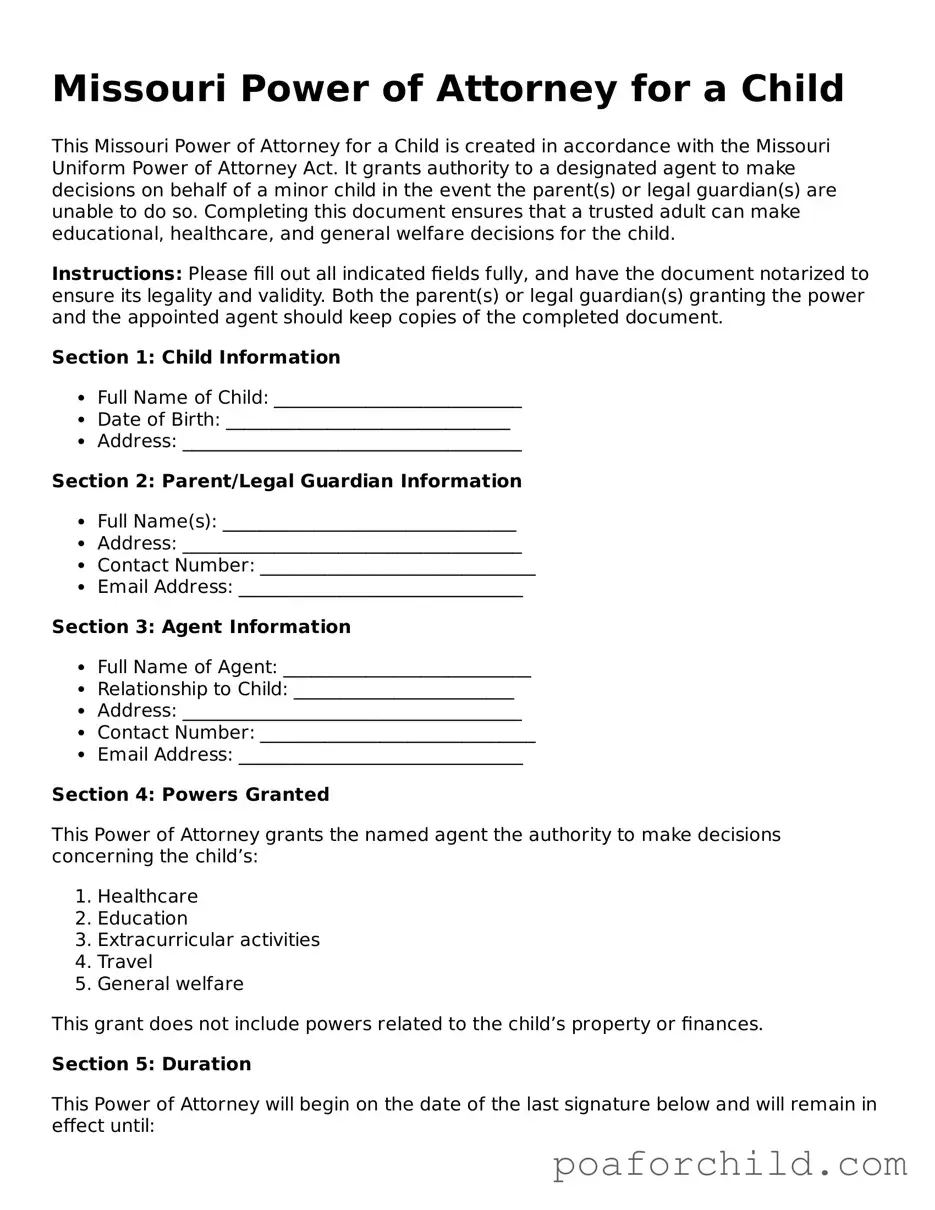Detailed Guide for Using Missouri Power of Attorney for a Child
The Missouri Power of Attorney for a Child form is a legal document that allows a parent or guardian to grant another adult the authority to make decisions and take certain actions on behalf of their child. This could include decisions relating to the child's education, health care, and general welfare. Completing this form correctly is essential to ensure that the designated adult has the legal authority required to act in the child's best interest, especially in the absence of the parent or legal guardian.
To fill out the Missouri Power of Attorney for a Child form, follow these steps:
- Begin by entering the date the document is being filled out at the top of the form.
- In the first section, write the full legal name of the child or children for whom the power of attorney is being granted.
- Next, provide the child's date of birth and address in the space provided.
- Fill in the full names and addresses of the parent(s) or current legal guardian(s) granting the power of attorney. If this includes you, ensure your information is accurate and complete.
- In the designated section, write the full name and address of the person who is being given the power of attorney to make decisions for the child.
- Specify the exact powers being granted to the attorney-in-fact. This may include decisions related to the child's education, health care, and other aspects of welfare. Be as detailed as possible to avoid ambiguity.
- Indicate the start and end dates for the power of attorney. It is important to note that a power of attorney for a child typically cannot exceed a one-year duration in Missouri.
- If there are any specific limitations or conditions on the power of attorney, make sure to list them clearly in the form. This ensures that the powers granted are understood and agreed upon by all parties.
- Both the granting parent(s) or guardian(s) and the designated attorney-in-fact must sign and date the form in the presence of a notary public. Ensure there is a designated space for the notary public to complete, which includes their signature, seal, and the date of notarization.
- Finally, keep a copy of the signed and notarized document for your records and provide the original to the attorney-in-fact. It may also be wise to share a copy with your child’s healthcare provider, school, or any other relevant organization that requires legal documentation of the attorney-in-fact’s authority.
Once the Missouri Power of Attorney for a Child form is fully completed and notarized, the designated attorney-in-fact will have the legal authority to make decisions for the child within the scope outlined in the document. It's crucial to review the document periodically to ensure it still reflects the current wishes of the parent or legal guardian and to renew it as necessary. This legal instrument is a powerful tool for ensuring a child's needs can be met even when their primary caregiver is not available to make those decisions personally.
